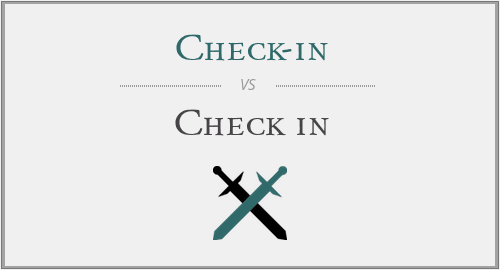Check-in vs. Check in: Navigating Terminological Waters
Within the realm of travel and hospitality, the terms "check-in" and "check in" are frequently used, but their proper usage can be a source of confusion. This article aims to clarify the distinctions between "check-in" and "check in," shedding light on their meanings, applications, and correct usage in various contexts.
Correct Usage:
Check-in:
"Check-in" is the correct and widely accepted term when referring to the process of registering or confirming one's presence, especially in travel scenarios. It is often used as a noun or an adjective, as in "the check-in process" or "the check-in counter."
Check in:
"Check in," when used as a verb phrase, indicates the action of registering or confirming one's presence. It is appropriately used when describing the act of arriving at a location and completing the necessary procedures, such as "to check in at the hotel."
Meanings:
Check-in:
The term "check-in" refers to the formal process of registration, typically involving the submission of personal information, receiving necessary documentation, or obtaining access to a particular service. It is commonly associated with airports, hotels, and events.
Check in:
"Check in" as a verb phrase denotes the action of completing the registration or confirmation process. This can apply to various situations, including hotel stays, flights, conferences, or any context where attendance or arrival is recorded.

Examples:
Correct: Please proceed to the check-in counter to complete your registration.
Correct: Don't forget to check in online before your flight.
Appropriate Contexts:
Use "check-in" when referring to the process, counter, or area associated with formal registration. Use "check in" when describing the action of registering or confirming presence in a particular location or event.
Conclusion:
Understanding the distinction between "check-in" and "check in" is vital for clear and effective communication, particularly in travel and hospitality settings. Whether you're navigating airport procedures or ensuring a smooth hotel arrival, using the correct term enhances precision and avoids terminological pitfalls.




Have a discussion about this article with the community:
Report Comment
We're doing our best to make sure our content is useful, accurate and safe.
If by any chance you spot an inappropriate comment while navigating through our website please use this form to let us know, and we'll take care of it shortly.
Attachment
You need to be logged in to favorite.
Log In